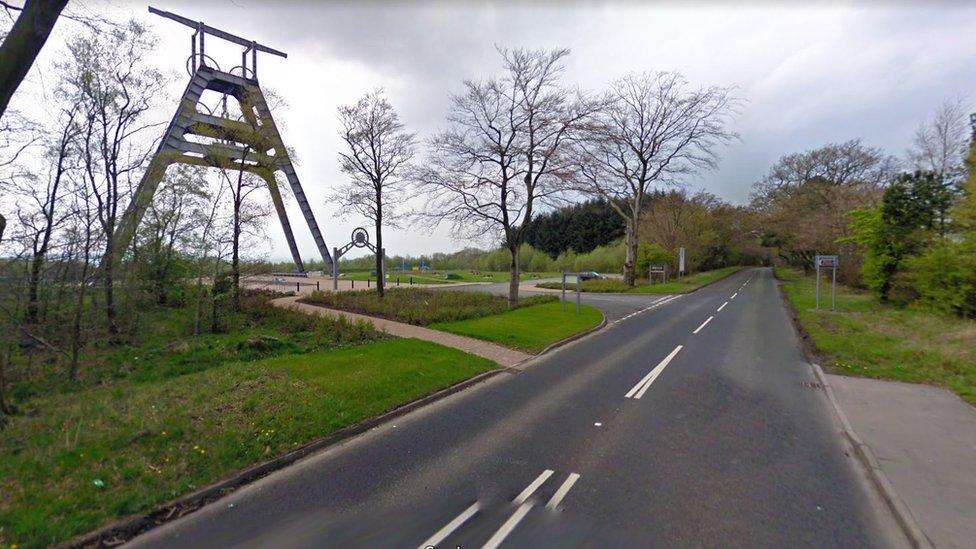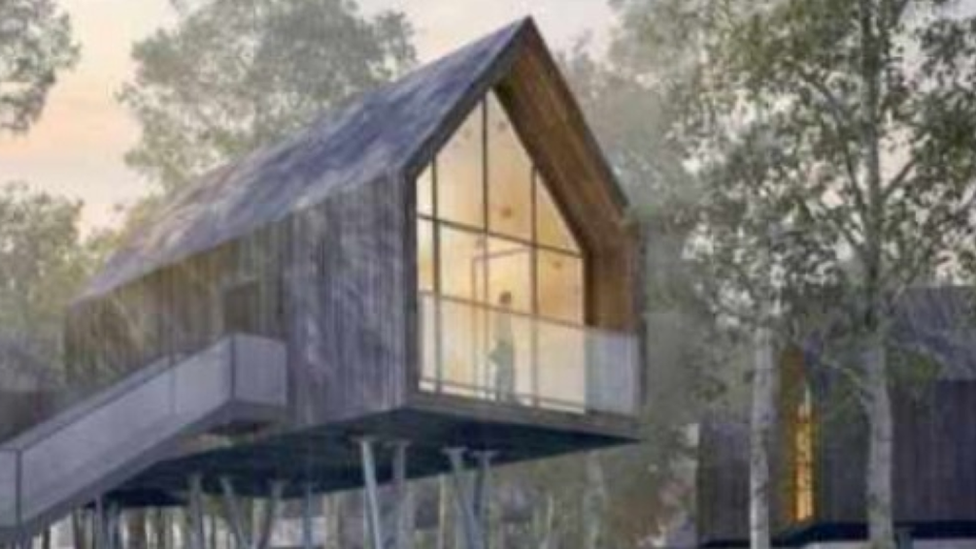Plans for eco-therapy park in East Ayrshire get go ahead
- Published

The development is proposed for land near the Barony A-Frame
Plans for an eco-therapy park in East Ayrshire have been given the go ahead, despite concerns about the impact on wildlife and safety.
The proposal includes a 40-room hotel and around 160 cabins as well as an ecologies hub and research facilities to be built near Auchinleck.
An earlier application which also included a dance studio and spa was rejected.
Planners said that the application was for planning in principle.
Last February, a planning application for a £60m leisure development featuring a range of facilities such as visitor accommodation, activity zone, yoga terrace and dance studio, cafe, spa and a "productive landscapes hub" was refused.
But a scaled back proposal has now been given the go ahead by East Ayrshire councillors, after planners recommended approval, despite many of the reasons for refusal last year still being a concern.
The site for the application is on the site of the former Barony Colliery which closed in 1989.
Among the reasons given for refusal in 2023 were the adverse impact on the wildlife habitats and failure to demonstrate that the development would not cause unacceptable impacts on the ecology of the site.
It also criticised the lack of evidence on the safety of building on colliery waste material known as coal bing.

Plans include building 160 log cabins on the site
In the report to East Ayrshire council's planning committee, the applicants addressed the stability of the bing, stating: "It may seem unusual to build on a colliery bing. Nonetheless, there is usually an engineering solution to most situations.
"In this case, if the development is to proceed, that will involve detailed studies of the materials involved, and their suitability in terms of how these perform under pressure of the various construction methods employed in the proposed development."
They added that the lack of information about the bing safety would be "at the financial risk of the developer" should it force alterations to the plans.
Planners did accept that the new plan addressed issues around the wildlife habitats. However, they said that the plans, as they stand, would still have an adverse impact, even with the mitigation.
However, they also acknowledged that the plan still failed to comply with guidance around biodiversity.
Despite the reduction in tree felling, the losses would still be considered contrary to guidance, taking account of those lost during construction.
The application was approved by the committee.
Reporting by Kevin Dyson, Local Democracy Service.